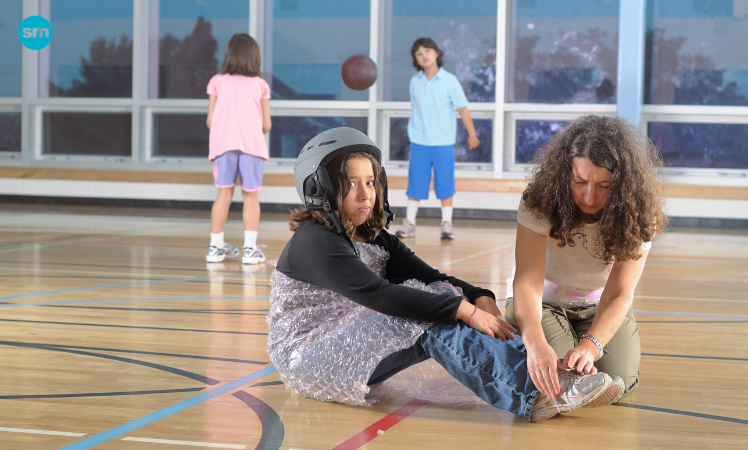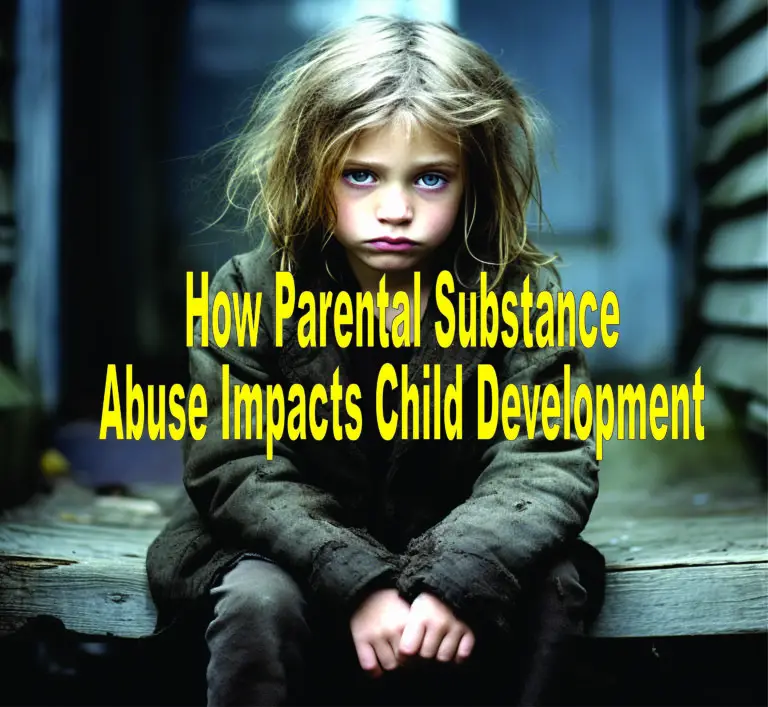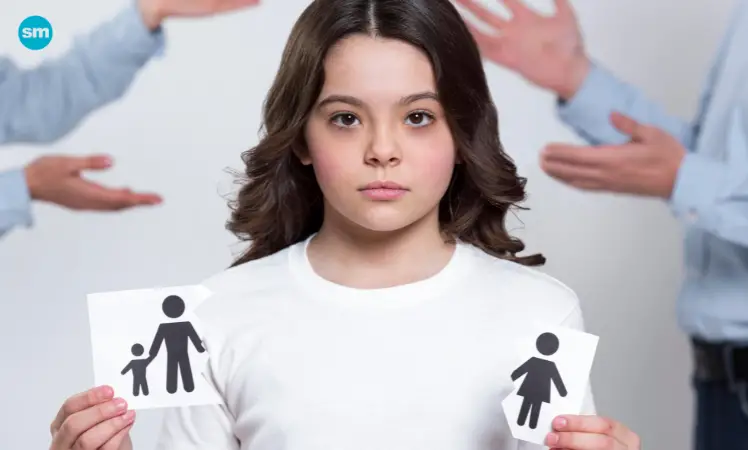Bad Parents: Signs, Effects, and How to Change It

Last Updated on January 24, 2024 by Lori Pace
There’s always an instance where you stop and ask yourself whether you’re doing great as a parent of your children. You doubt your skills and you doubt your decisions. It seems like you’re not doing great. Besides, there are a lot of bad parents out there. But, the fact that you’re wondering about whether you are a bad parent is a sign that you aren’t.
It’s either just a bad day, and you suddenly lashed out. You’re human, and you’re not perfect. What’s important is that you want to change your behavior for the well-being of your children.
So, What is Bad Parenting, or Bad Parents?
We all have our own view of “bad” and it’s different for everyone. However, most people associate bad parenting with physical abuse, neglect, and emotional abuse. If you’re doing any of the three, you’re going to need professional help.
There are other things parents can do and say that could cause adverse outcomes for their child, including child abuse or neglect. You can feel more confident about your parenting by recognizing if you are doing these things.
It’s not always easy to assess your parenting style. It is important to separate the behavior and the person. It’s not a good idea to call yourself or another parent “bad parents” based on differences in parenting styles or beliefs. You must also recognize that there is a distinction between being a bad parent and having a bad moment.
It’s okay to lose your temper occasionally, but it’s not the same thing as telling your child “I’m smart and you’re stupid” or “I am right, you are wrong, and there is nothing you can do.” Although there are differences in opinion about what parenting is best, the majority of parents share both positive and negative traits.
Signs of Bad Parents
Over Or Under Involvement
You have a parent who is uninvolved and neglectful, who fails to provide for their child’s basic needs, such as shelter, food, clothing, and transportation.
Although it is not as harmful as a neglectful parenting style, being too involved with your child (or helicopter parent) can cause you to be too involved and take control of their decisions. This can hinder them from learning by doing.
Bad Parents have Little Or No Discipline and So Do Their Children
Children with little or no discipline can be left to fend on their own, which can lead to injuries and a child who doesn’t understand boundaries. Children look to their parents to determine what boundaries are and what consequences can be if they cross them.
Strict Or Rigid Discipline
Parents who enforce strict discipline, don’t allow their child to explore the world around them. This can lead to fearful, anxious, or rebellious behavior.
Withdrawing Affection And Attention
Ignoring children is telling them that what you love is conditional. Similar harm can be done by withdrawing affection when a child doesn’t do what is asked. She says that these behaviors can lead to low self-esteem or low confidence in children, which could cause them not to express their needs.
This can lead to dependency in which the child will act according to what they are told. And could also sometimes lead to abusive relationships.
Shaming
Children who feel constantly shamed in school or at home can develop a fear of failure and an obsession with perfection. This can lead to depression and anxiety.
What Are The Effects Of Bad Parents?
Children who do not have positive parenting may be more vulnerable to their own problems, such as depression, anxiety, aggression and other negative outcomes.
These effects can be caused by a pattern of bad behavior. The time you shouted at your child for breaking their favorite coffee mug is not the same thing as a pattern of criticisms or physical violence.
Negative Self-Perception
Overuse of negative labels or shaming is a parenting mistake that can have long-lasting consequences. Consistently using negative labels like name-calling deeply impacts children’s self-sense and contributes long-standing negative self–narratives, and self-fulfilling prophecies.
Shame is a powerful emotion that can paralyze and embed deeply in one’s psyche and self-image. Dorfman believes that many people, including parents, can encourage it to discourage negative behavior and motivate towards positive ones.
Children will begin to internalize these messages and become more accustomed to negative labeling and shame. They will learn to talk to themselves in the same way as their parents, which can lead to them expressing negative feelings and making harsh self-criticisms. People with negative self-perceptions tend to seek out relationships that reinforce what they are used to hearing.
Control Issues And Rebellion Because of Having Bad Parents
Children who are too rigid or strict with their discipline may have problems with controlling others and obsessive compulsive disorder. The rebellious child, who is unable to work with their parents and breaks the rules, is at the opposite end of the spectrum.
Emotional And Behavioral Problems
Abusive parenting can result in children having behavioral and emotional problems. This includes hitting and verbal threats, yelling and hitting.
What Can You Do To Stop Becoming Bad Parents?
Negative parenting can be dangerous for children, but it is not the only factor that affects their outcomes. Even positive parents can have children with emotional or behavioral issues. A bad parenting day does not make you a bad parent.
Parenting is a continuous process and can be difficult. It can feel harder if you have had to struggle because of the negative examples your parents gave you. You can overcome the negative messages that you have been given and create a healthy relationship between you and your children.
Although your parents might not have been role models for you, there are many people who can help you find positive support from other parents and help you to make your parenting decisions. You can change if you fall into bad parenting habits more frequently than you would like.
Redesigning your parenting style takes patience, honesty, hard work, and a lot more. It’s never too late for you to make a change. Positive changes can make a difference in the life of your child. These are some ways to focus on the positive.
Listen to your child’s thoughts and feelings
All of us want to be heard, even though you may not agree with everything said, they all need someone who will listen. Listen to your children and validate their emotions.
Provide appropriate consequences
Teach your child positive lessons by using discipline. She says that hitting a child can lead to anger and resentment, as well as causing them to hit other children.
Create a rewards system or give them time to do something they love. Do not take something away for a week. Instead, give it to them for an afternoon. Be sure the punishment is appropriate for the behavior that you are trying to correct.
Label the behavior, not the child
Parents should not label their children. They should label behavior and not character. If a child acts out, remind them it’s the behavior and not the character of a bully.
Don’t withhold attention
All parents have their moments of anger with our children. However, ignoring them can only cause confusion in a child. It’s always best to explain to them that you are angry and, even though you are mad at them, you still love them.
Show love and affection
Showing affection and love to your child goes beyond just showing that you love them. This is also a result of loving your child unconditionally, supporting them, being physically affectionate and spending quality time together.
Let them make mistakes
Let your children be creative and make mistakes. Ask your child to tell you what they could have done differently when they make a mistake. Their own mistakes can be used to teach them that learning never ends and that everyone has their bad days. Everyone benefits from admitting that they have made mistakes, apologizing and working to improve.









